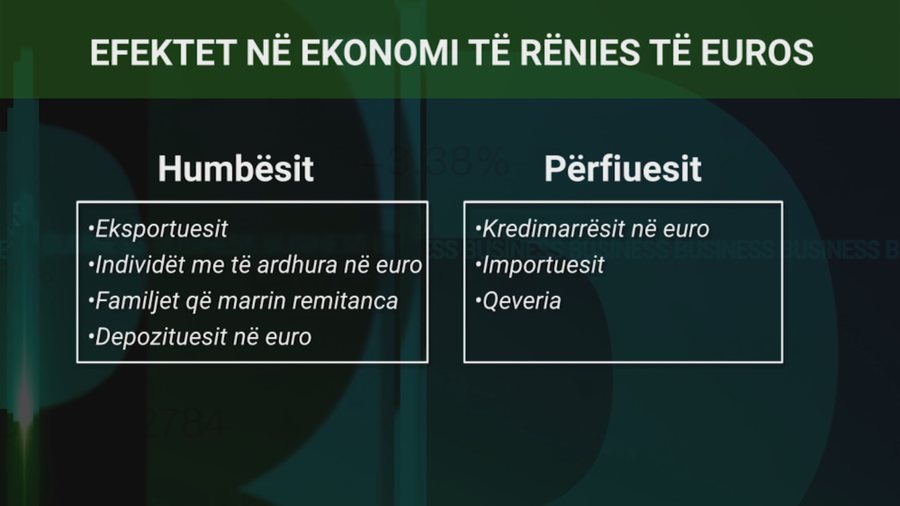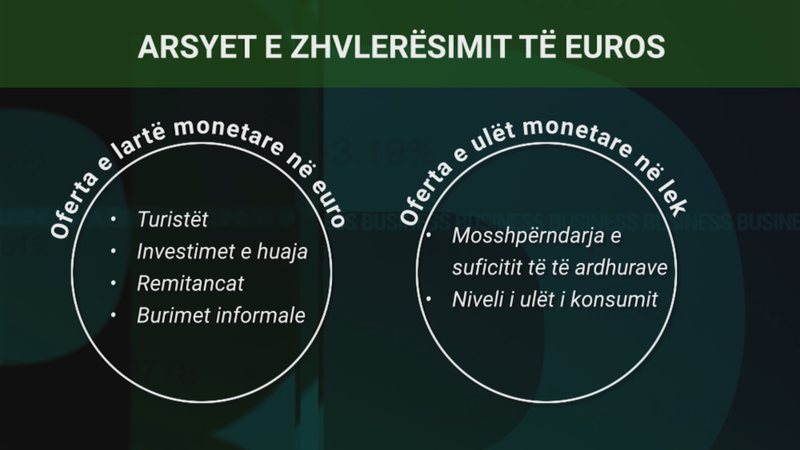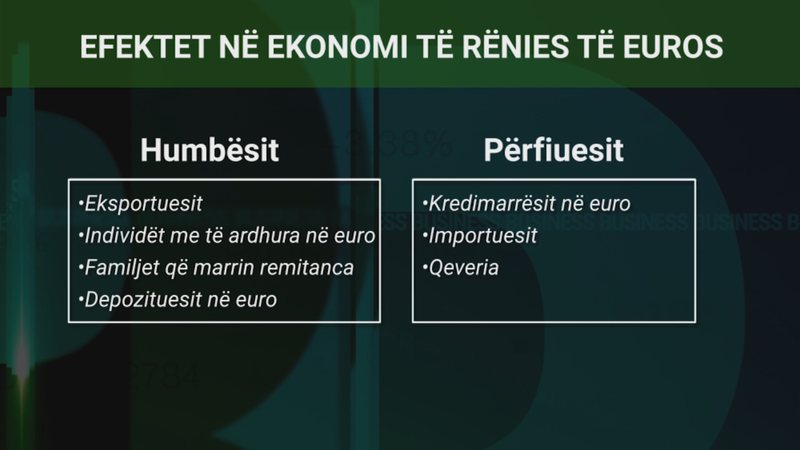This year is ending with a weaker euro than ever. The European currency has entered an unstoppable downward spiral, with no end in sight. With the December holidays approaching and some of the emigrants returning home, it is likely that this currency will hit new historic lows in the coming weeks.

Currently, in our exchange market, the euro is exchanged at 98.4 ALL, losing more than 10 ALL compared to last year and over 29 ALL in the last 6 years. The depreciation of the euro has accelerated especially after 2022.
But why has this situation and this strong imbalance between currencies in the exchange market been created?

Throughout the year, there has been a large supply of money in euros in the market. In other words, large amounts of this currency, generated by tourists; foreign investment, remittances or remittances and informal resources. Meanwhile, the monetary supply in lek, in other words, the amount of lek in circulation to balance the excess euro, has been low. This is due to the non-distribution of surplus income during the year, but only in December by the government and secondly, due to weak consumption.
The euro is the second most used currency in our country after the lek. This means that devaluation has its losers and its winners.

All those who have income in this currency lose from a weak euro, including families who receive money from immigrant relatives. Depositors in this currency and exporters, whose activity is in euros and expenses in lek, lose.
While those who have loans in euros benefit, as they will pay less for monthly installments; importers buying goods and products more cheaply, and the government paying less on foreign debt.
The Bank of Albania is the institution that oversees the foreign exchange market, even though this market is legally subject to a free regime. (A2 Televizion)













